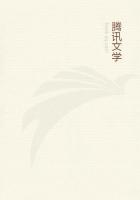September 26th.--One of those delicious autumnal days, when the air, the sky, and the earth seem lulled into a universal calm, softer and milder even than May. We sallied forth for a walk, in a mood congenial to the weather and the season, avoiding, by mutual consent, the bright and sunny common, and the gay highroad, and stealing through shady, unfrequented lanes, where we were not likely to meet any one,--not even the pretty family procession which in other years we used to contemplate with so much interest--the father, mother, and children, returning from the wheat-field, the little ones laden with bristling close-tied bunches of wheat-ears, their own gleanings, or a bottle and a basket which had contained their frugal dinner, whilst the mother would carry her babe hushing and lulling it, and the father and an elder child trudged after with the cradle, all seeming weary and all happy. We shall not see such a procession as this to-day; for the harvest is nearly over, the fields are deserted, the silence may almost be felt. Except the wintry notes of the redbreast, nature herself is mute. But how beautiful, how gentle, how harmonious, how rich! The rain has preserved to the herbage all the freshness and verdure of spring, and the world of leaves has lost nothing of its midsummer brightness, and the harebell is on the banks, and the woodbine in the hedges, and the low furze, which the lambs cropped in the spring, has burst again into its golden blossoms.
All is beautiful that the eye can see; perhaps the more beautiful for being shut in with a forest-like closeness. We have no prospect in this labyrinth of lanes, cross-roads, mere cart-ways, leading to the innumerable little farms into which this part of the parish is divided. Up-hill or down, these quiet woody lanes scarcely give us a peep at the world, except when, leaning over a gate, we look into one of the small enclosures, hemmed in with hedgerows, so closely set with growing timber, that the meady opening looks almost like a glade in a wood; or when some cottage, planted at a corner of one of the little greens formed by the meeting of these cross-ways, almost startles us by the unexpected sight of the dwellings of men in such a solitude. But that we have more of hill and dale, and that our cross-roads are excellent in their kind, this side of our parish would resemble the description given of La Vendee, in Madame Laroche-Jacquelin's most interesting book.* I am sure if wood can entitle a country to be called Le Bocage, none can have a better right to the name. Even this pretty snug farmhouse on the hillside, with its front covered with the rich vine, which goes wreathing up to the very top of the clustered chimney, and its sloping orchard full of fruit--even this pretty quiet nest can hardly peep out of its leaves. Ah! they are gathering in the orchard harvest. Look at that young rogue in the old mossy apple-tree--that great tree, bending with the weight of its golden-rennets--see how he pelts his little sister beneath with apples as red and as round as her own cheeks, while she, with her outstretched frock, is trying to catch them, and laughing and offering to pelt again as often as one bobs against her; and look at that still younger imp, who, as grave as a judge, is creeping on hands and knees under the tree, picking up the apples as they fall so deedily,** and depositing them so honestly in the great basket on the grass, already fixed so firmly and opened so widely, and filled almost to overflowing by the brown rough fruitage of the golden-rennet's next neighbour the russeting; and see that smallest urchin of all, seated apart in infantine state on the turfy bank, with that toothsome piece of deformity a crumpling in each hand, now biting from one sweet, hard, juicy morsel and now from another--Is not that a pretty English picture? And then, farther up the orchard, that bold hardy lad, the eldest born, who has scaled (Heaven knows how) the tall, straight upper branch of that great pear-tree, and is sitting there as securely and as fearlessly, in as much real safety and apparent danger, as a sailor on the top-mast.
Now he shakes the tree with a mighty swing that brings down a pelting shower of stony bergamots, which the father gathers rapidly up, whilst the mother can hardly assist for her motherly fear--a fear which only spurs the spirited boy to bolder ventures. Is not that a pretty picture? And they are such a handsome family too, the Brookers. I do not know that there is any gipsy blood, but there is the true gipsy complexion, richly brown, with cheeks and lips so red, black hair curling close to their heads in short crisp rings, white shining teeth--and such eyes!--That sort of beauty entirely eclipses your mere roses and lilies. Even Lizzy, the prettiest of fair children, would look poor and watery by the side of Willy Brooker, the sober little personage who is picking up the apples with his small chubby hands, and filling the basket so orderly, next to his father the most useful man in the field. 'Willy!' He hears without seeing; for we are quite hidden by the high bank, and a spreading hawthorn bush that overtops it, though between the lower branches and the grass we have found a convenient peep-hole.















